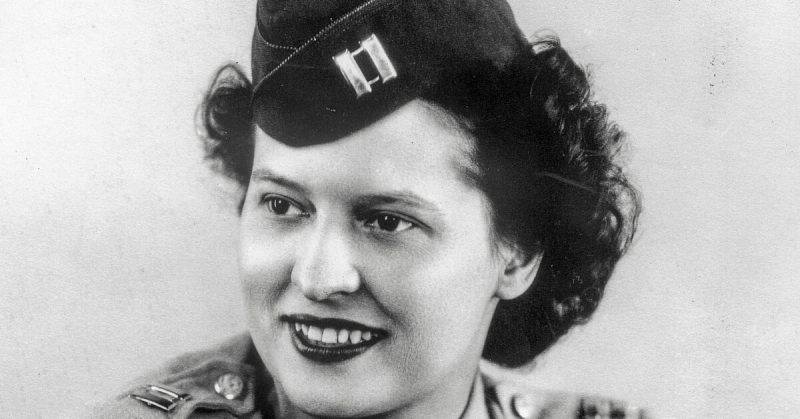Stephanie Czech Rader was known as the wife of a famous military aviator. Now she is being recognized as a spy who reported on Soviet troop movements behind the Iron Curtain.
She received the Legion of Merit on Wednesday, posthumously, during funeral services with full military honors in Arlington National Cemetery. Rader died in January at the age of 100.
Rader worked in the Office of Strategic Services (OSS) which eventually became the CIA. As the daughter of immigrants from Poland, her fluent Polish made her a valuable asset to the OSS. They recruited her from her position with the Women’s Auxiliary Air Corps and placed her in Poland from October of 1945 to February of 1946.
Her official job was as a clerk at the U.S. embassy in Warsaw, but secretly, she worked to report Soviet troop movements. She traveled the countryside by herself. She was offered a gun for protection, but she turned it down. Carrying a weapon might have blown her cover.
In January of 1946, she was carrying sensitive documents when Polish security forces arrested her. She was able to get rid of the documents before being taken into custody. She was under 24-hour surveillance for the rest of her service in Poland.
She was recommended for the Legion of Merit in 1946, but it was never acted upon. Some have argued that sexism within the hierarchy may have prevented the process from continuing, though it may also have been because the OSS was dissolved, meaning that there was no longer an organization lobbying for her.
The OSS hired 13,000 people and about a third were women, making them progressive in hiring women at the time. The number of living OSS veterans are estimated to now be in the hundreds.
Rader served under her maiden name of Czech. She married William S. Rader, a World War II bombing commander who became a brigadier general in the Air Force and won the Legion of Merit himself. They had been married 57 years when he passed away in 2003.
The OSS Society and other historians only learned of Rader’s work after OSS records were declassified in 2008. They began to lobby for her to receive the award. Sen. Mark Warner, D-Virginia, also joined the cause. Last week, the Army announced that they would award her the honor posthumously.
For years, her family was in the dark about her spying past. Kathy Roxby, Rader’s niece, didn’t learn about it until Rader’s 100th birthday, years after the documents were declassified.
“She said she was supposed to keep it a secret,” Roxby said.
Linda Hobbs, another of Rader’s nieces, was also surprised but feels that it makes sense, in hindsight.
“She was tough, let me tell you. As a kid, I was a little scared of her,” Hobbs said.
Despite her best efforts, she couldn’t keep it a secret from everyone. About 30 years ago, the Raders were traveling through Poland with their good friends, Ken and Judie Elder. As they walked through the old town square in Warsaw, she told a story about Eisenhower touring the rubble just after the war.
The next day, on a tour, the guide told the same story and commented on how few people remembered the details of that visit. Elder became curious and he began to question Rader, eventually coming right out and asking her if she had been a spy.
“I guess that might be what you call it,” she replied.
